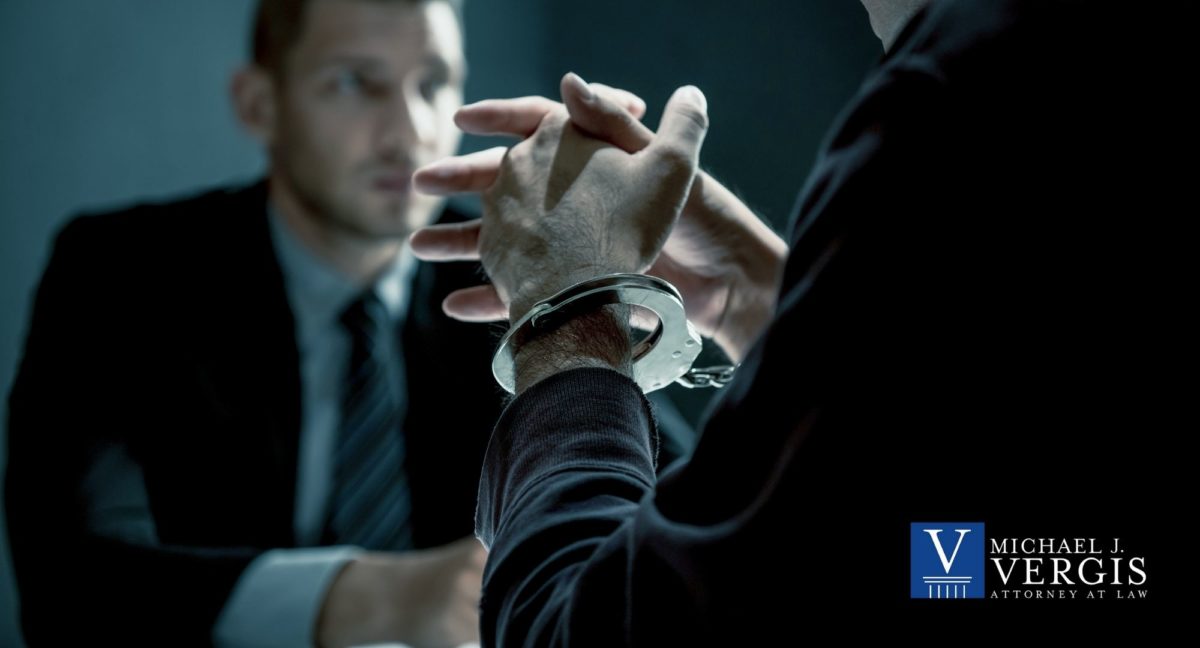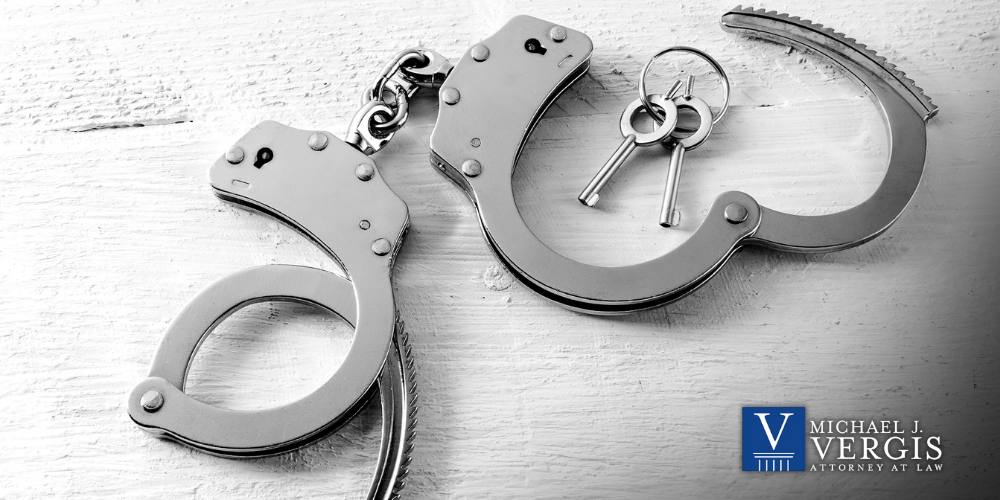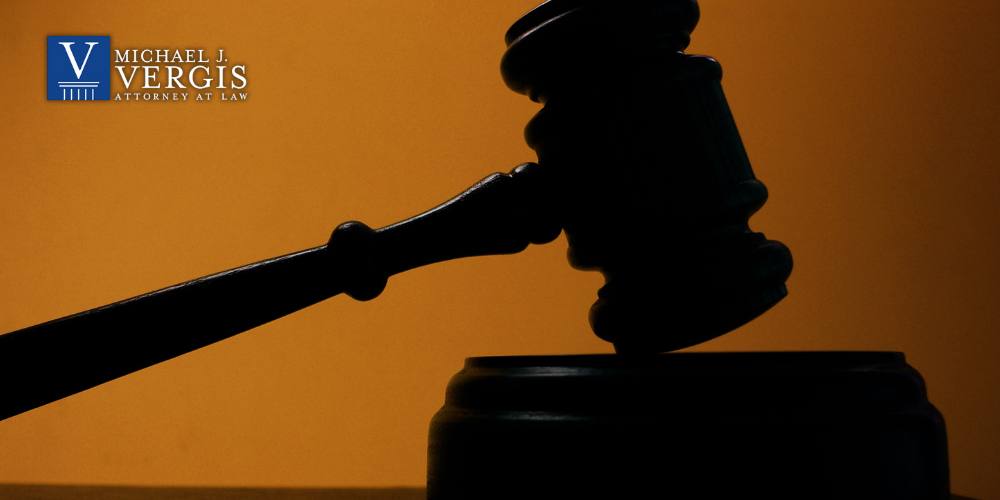Home » Criminal Defense » Shreveport Probation & Parole Violations
Shreveport Probation and Parole Violation Defense Lawyer
Probation and Parole Violation Lawyers in Shreveport, Louisiana
Table of Contents
Criminal offenders in Louisiana can face serious consequences for their actions, including jail time. However, under certain circumstances, offenders may be offered the opportunity to reduce their time spent in jail through probation or parole. Probation and parole are programs are designed to allow those with a criminal conviction to serve part or all of their sentences outside of prison and within their respective communities.
Individuals participating in these programs must adhere to strict guidelines. Failure to do so can result in a parole or probation violation, which brings along with it serious repercussions, like the potential reinstatement of a prison sentence, for example. But don’t worry – an experienced Shreveport criminal defense attorney like Michael J. Vergis can help you avoid the worst consequences for parole and probation violations, such as prison time or revocation of probation.

The Law Offices of Michael J. Vergis are trusted by the Shreveport-Bossier community after diligently serving the region for over 25 years. Attorney Michael J. Vergis is ready to use decades’ worth of experience in Louisiana courts to your benefit. Call (318) 698-3724 or contact us online as soon as possible to get the aggressive representation you need during your violation hearing.
What are the Conditions of Probation in Louisiana?
Probation in Louisiana often functions as an alternative to jail time, typically offered at the time of sentencing. This potentially allows individuals convicted of criminal offenses to avoid spending any of their sentence in jail. For this reason, probation is most often granted to those charged with less serious convictions, such as first-time or non-violent offenders.
To ensure public safety, the Louisiana Department of Corrections requires those on probation to follow specific rules. The specific conditions are set by a judge according to the severity of the crime that was committed. Under Louisiana law, potential conditions of probation for offenders are as follows:
- Make a full and truthful report at the end of each month.
- Meet specified family responsibilities, including any obligations imposed in a court order of child support.
- Report to probation officer as instructed.
- Permit probation officer to visit at residence or elsewhere.
- Maintain approved employment or occupation.
- Refrain from owning or possessing firearms or dangerous weapons.
- Make reasonable reparation or restitution to the aggrieved party, if any, for any damage or loss caused by the offense.
- Refrain from visiting unlawful or disreputable places or associating with disreputable people.
- Remain in the specified jurisdiction. Receive permission from probation officer before making any change to address or employment.
- Take part in approved reading program if unable to read the English language.
- Perform community service work as ordered by the court.
- Submit to medical, psychiatric, mental health, or substance abuse examination or treatment when ordered to do so.
- Comply with searches of person, property, place of residence, vehicle, or personal effects at any time with reasonable suspicion by probation officer.
Failure to abide by any of these conditions can qualify as a probation violation. Probation officers responsible for the supervision of a defendant are authorized to arrest defendants under certain circumstances. If an officer has reasonable cause to believe that a violation has occurred or that the defendant is about to violate a condition, they can arrest the defendant without a warrant. Additionally, officers may arrest defendants in emergency situations that create undue risk to the public or the probationer.
Regardless of the type of violation, you will be held responsible via court-imposed penalties. If you have violated the terms of your probation, it is best to be honest with your probation officer. Your probation officer may be more inclined to give you a second chance if you show a commitment to addressing issues that lead to violations. For example, your probation officer may suggest alternative penalties, such as counseling or increased supervision, in place of the harsher possible consequences.
What is a Violation of Probation?
There are two categories of probation violations: technical and substantive. When an offender fails to comply with the conditions of their probation as determined by a judge, it counts as a technical probation violation. The most common types of technical violations include failing a drug or alcohol test, failing to report to the assigned probation officer, failing to pay required fines or restitution to the victim, or failing to complete community service requirements.
If an offender commits a new criminal offense within their probation period, it is a substantive probation violation. Both felony and misdemeanor criminal offenses qualify as substantive violations. This type of probation violation is considered more severe and warrants harsher penalties.
Is a Probation Violation a Felony?
The act of violating probation is not, in and of itself, a felony. The severity of the original crime and the nature of the violation determine the consequences a judge may impose. For example, if the offender’s original crime was a felony or if the violation involved committing a new felony, the penalties for probation violation will be harsher.
Louisiana Felony Probation Rules
Generally speaking, the conditions for probation in Louisiana are the same for felonies and misdemeanors. However, the judge will likely impose harsher conditions in cases involving felony crimes. Additionally, offenders convicted of felony crimes will likely face harsher penalties for violating probation.
Probation Violation Sentencing in Louisiana
Following a violation, the court will summon the defendant for a probation violation hearing. The Louisiana Code of Criminal Procedure (CCRP 900) establishes the penalties for offenders who violate their probation in Louisiana. If it has been proven that an individual was in violation of the terms of their probation, the court may impose any of the following punishments:
- Warning
- Increase your supervision
- Add additional conditions to your existing probation terms
- Court-approved community rehabilitation center for up to six months
- Revocation of probation
- Offenders must serve their suspended sentence, with or without credit for the previously served probation time.
- Sentence of up to a year in an intensive incarceration program, after which the offender must return to supervised probation
- Extended period of probation
- Sentence of 15 to 90 days in jail
- Sentence depends on the number of violations committed, whether the offender was convicted for a crime other than one of violence or certain sexual offenses and whether they committed a technical violation of probation.
When determining the appropriate consequences for a probation violation, the court considers several factors, including but not limited to the nature of the violation, past criminal offenses, and whether there have been multiple violations.
Louisiana Probation Violation Jail Time
If a judge finds you in violation of your probation, you may be sentenced to prison time in one of two ways. First, you might serve a limited jail or prison sentence for the violation itself. Second, if the court decides to revoke probation altogether, you will have to serve a portion or the entirety of your original sentence.
Probation Violation 1st Offense Louisiana
Typically, technical probation violation does not result in revocation of probation. If jail time is imposed as a penalty for a first violation, it will be a ten-day sentence.
Substantive probation violations are much more likely to lead to revocation of probation, even for a first-time offense. In these cases, jail time will depend on the original sentencing, any credited time the defendant is granted towards that sentence, and any additional incarceration imposed by the court.
Multiple Probation Violations in Louisiana
Louisiana limits the sentencing of technical probation violations to ten days per violation and sixty days per year. For multiple substantive probation violations, the maximum possible jail time is considerably higher, given that the defendant is more likely to have their probation revoked. On top of the original sentence, the defendant may be required to serve additional time for the violations they have committed.

What are the Conditions of Parole in Louisiana?
While probation is often granted in lieu of incarceration, parole is not an alternative to jail time. Rather, it is only granted after serving a portion of time in prison. If, during their incarceration, an individual demonstrates good behavior, they may be allowed to serve the remainder of their sentence outside of jail, in their community.
Louisiana’s conditions of parole are as follows:
- Report to the Probation and Parole Office no later than 48 hours following release.
- Submit a report by the 5th of every month until parole is completed.
- Report to parole officer when ordered to do so.
- Live at the address indicated on the provided certificate. Before moving from the indicated address, offenders must first gain permission from their parole officer.
- Remain in the state of Louisiana unless otherwise granted written permission from parole officer.
- Do not engage or associate with people who are engaged in criminal activity.
- Avoid bars and casinos and refrain from illegal use of drugs and alcohol.
- Do not possess or control any firearm or dangerous weapon.
- Work at job approved by parole officer. Report to parole officer immediately in the case of unemployment.
- Truthfully and honestly answer all questions asked by parole officer.
- Submit to medical, mental health, or substance abuse exams or treatment when ordered to do so by parole officer.
- Submit to drug and alcohol tests.
- Allow visits from parole officer at place of residence or employment at any given time.
- Allow searches of person, property, residence, and vehicle when reasonable suspicion exists.
- Pay established supervision fees (set by Louisiana Department of Public Safety & Corrections pursuant to the Louisiana Revised Statutes) by the first of each month.
- Waive extradition to the state of Louisiana from any jurisdiction in or out of the United States. Offenders cannot contest any effort made by any jurisdiction to return them to the state of Louisiana.
- Should parole be revoked for any reason, offender must recognize that they forfeit all good time or additional credits earned on that portion of their sentence served prior to the granting of parole. Offender must serve remainder of sentence as the date of their release on parole.
Parole Violation Sentencing in Louisiana
If a person violates their parole, they will first be given a notice of the claimed violation. Next, a preliminary hearing will take place to determine if there was probable cause to warrant the supposed violation. A final hearing will be held before the parole board to establish whether or not the incident was, in fact, considered a parole violation. If the board agrees that it was, the offender will likely be sent back to prison to serve part or all of the original sentence. This is what is known as parole revocation.
Common Parole Violations
Courts often penalize violations of parole programs more harshly than probation violations. It is important to be aware of the requirements of your parole as determined by the court to avoid these harsh penalties. Common violations of parole include the following:
- Moving without permission
- Unauthorized contact with victim or victims
- Failure to report to parole officer
- Failure to conduct or pass drug test
- Broken curfew
Failure to comply with any of the parole conditions can result in technical violations of parole and may put the offender back in prison.
Louisiana Parole Violation Jail Time
Being accused of parole violation is an especially serious matter because it poses a greater risk to your freedom. While probation violations may lead to warnings or modification of the terms of your probation, parole violations more frequently lead to incarceration. Jail or prison sentences for parole violations are higher than sentences issued for probation violations. Additionally, it is more likely that your parole will be revoked if you violate the terms of parole.
First Violation of Parole
In cases of technical probation violation, a parolee who violates their parole for the first time can be sentenced to up to 90 days of jail time. Subsequent violations are subjected to lengthier sentences.
Louisiana Felony Parole Violation
Conviction of a new felony criminal offense in Louisiana results in an automatic revocation of parole. Additionally, if the parolee commits a felony in another state or a misdemeanor in another state that would be considered a felony in Louisiana, the parole will be automatically revoked. If you’ve been accused of felony parole violation, contact a Shreveport felony criminal defense lawyer as soon as possible.

Louisiana Probation and Parole FAQs
Criminal defense attorney Michael Vergis is aware of how stressful it can be to be summoned to court when accused of probation or parole violation. After years of serving the Shreveport community, he understands how to help his clients prepare for formal court hearings. He can help you prepare, too.
Here are some frequently asked questions and answers about Louisiana probation and parole.
If you have been accused of a parole or probation violation, whether technical or substantive, you need to know your rights. To begin, you must have been presented with written notice of the reported probation violations. If you receive this notice, you have the right to plead your case to a judge in court, where you may present evidence and witnesses for your case. You also have the right to legal representation from a Shreveport-Bossier criminal defense attorney.
No, probation violation is not a felony. Probation violations can be the result of failing to meet the conditions of your probation or the result of new criminal offenses, including both misdemeanor and felony offenses.
Louisiana law does not limit the number of violations you can get on probation. After the first violation, subsequent violations are more likely to have harsher consequences.
It is up to the discretion of the judge to determine how many times probation can be reinstated. The judge will base their decision on the nature of the original crime, the defendant's criminal history, the type of violations committed, and other relevant factors.
How long you can be held in jail for a parole violation depends on a few factors. Firstly, it can depend on how quickly the parole committee reviews your case. Upon arrest, defendants are to be given a prerevocation hearing within a reasonable time. Second, it can depend on whether or not the judge sets bond. Once bond is set, a parole detainer will expire ten days later unless the division of probation and parole seeks to maintain the detainer.
You can be held in jail for a probation violation for a period of up to 30 days. Within 10 days of your arrest, the court must decide if there is probable cause to detain you pending a final violation hearing or if you will be allowed bail pending the final hearing. Courts may choose to allow bail before the 10-day period expires, resulting in an earlier release from custody. If the court decides to continue to hold you in custody after that 10-day period, you must be brought before the court within 30 days of your arrest for a hearing.
Whether or not probation or parole is revoked is up to the judge. However, revocation is more common in cases of substantive violations than in cases involving technical violations.
If you've been accused of parole or probation violation, experienced legal representation can make a substantial difference in the outcome of your case. Conviction of probation or parole violation requires the prosecution to provide a preponderance of evidence, proving a more than 50% likelihood that the alleged violation occurred. The prosecution is more familiar with the complexities of Louisiana law than you are and is experienced in matters of parole and probation. Securing reliable legal support for your parole or probation violation hearing allows you to benefit from the extensive knowledge and experience of a trained professional.
After discussing your case in detail, your lawyer will determine the best strategies to achieve a desirable outcome for your case. Your attorney can negotiate on your behalf, suggesting alternatives to harsher penalties like incarceration or revocation, or even potentially have the charges against you dropped altogether.

Probation and parole violations in Louisiana should not be taken lightly. If you’ve violated your probation or parole, act quickly. The consequences can be severe, but you still have options. Protect your freedom by working with a skilled attorney who understands the criminal justice system and how to navigate it effectively.
At The Law Office of Michael J. Vergis, our Shreveport probation and parole violation attorneys will tirelessly advocate for your rights. Our main goal is to have the charges against you dropped, if at all possible. If you are convicted of these charges, we seek to reduce any penalties levied against you. We can also help connect clients with community resources that may support rehabilitation and compliance.
Contact Attorney at Law Michael J. Vergis today to schedule a free consultation with an experienced Shreveport probation and parole violations attorney. Call (318) 698-3724 or fill out the form below to get started. We look forward to providing you with an unparalleled level of service in a competent and caring manner.


